ESC-tension 2 Core Partners

Fondazione ENDISU – Ente per il diritto allo studio e i servizi agli studenti
It is the Italian Student Support Foundation and has the aim of providing services for undergraduates enrolled in partner Universities. This institution was founded in 2011 with the purpose of analysing, studying and supervising the socio-economical dynamics of the Student Support in Italy in order to improve the quality of the services provided to students. Since 2015, the Foundation has been very active in the field of digitalisation and students recognition at a European level, cooperating in several projects funded by the EU Commission.
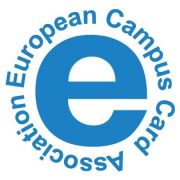
ECCA – European Campus Card Association
The European Campus Card Association (ECCA) was established as a not-for-profit association in 2002. Its policies and strategies are dedicated to the implementation of student eID credentials in Higher Educational Institutions (HEIs) that support student mobility and the provision of trusted identification and secure access to services across European countries. Its main strategy focuses on the provision of interoperability, connectivity and mobility between HEIs both within their home country and across Europe. ECCA’s key activities are mainly focused on a process of networking, knowledge sharing and collaboration with its membership of European HEIs and Services Providers. These activities include initiating research projects, workshops, surveys with its membership, policy makers and other relevant stakeholders throughout Europe and the United States. The strategy behind these initiatives is to gather and evaluate important information on the benefits, requirements and viability of a trusted Student eID credential, compliant to eIDAS regulations that supports HE Institutions and Service Providers on a cross-border basis throughout Europe.

ISIC – International Student Identity Card
The ISIC card allows students the world over to prove their official student status and make the most of thousands of targeted
student benefits in over 130 countries/territories.
Developed in 1953 to help nurture cross-cultural understanding and international exchange, the ISIC card provides students with access
to exclusive discounts on travel opportunities, allowing cardholders to discover and interact with new countries, cultures and languages at reduced rates.
The ISIC card has been endorsed by the United Nations Educational, Scientific and Cultural Organization (UNESCO) since 1968. The card is recognized by universities, academic institutions, student unions, national governments, financial institutions and ministries of education around the world.
In addition, ISIC provides Cobranded International Student Cards for more than 1.500 institutions around the world letting their student to be identified in their school, in their cities and also, around the world.

Universidade de Aveiro
The University of Aveiro is a young university, founded in 1973, with over 15,000 full-time students (graduates and postgraduates). The University has a strong research profile, a unique model of governance (16 Departments, 4 Polytechnic Schools and various training centres), acting as a regional network for education and training while promoting strong links with the surrounding community, and is a pioneer in launching degrees in new subject areas. The BMD (Bachelor, Master, Doctorate) structure is fully implemented and learning outcomes are introduced. Recognition of prior learning is also implemented, for those who do not have the formal entry requirements.
The University has been a member of the European Consortium of Innovative Universities, the ECIU, since 1998 as well as several other international university networks of excellence and, since 2019, a member of the ECIU University under the EU Universities initiative. UA also runs several joint doctoral programmes with other Portuguese Universities and is one of the Portuguese institutions participating in the collaboration between Portugal and Carnegie Mellon University for the development of PhD programmes and research in the field of ICT. At the same time, the development of a Creative Science Park off campus is an example of the way in which the university has encouraged both innovation and commercialization linked to research. It has also provided resources for its research policy through funding and the provision of high-quality researchers and researcher mobility.
UA has participated in the Erasmus since 1987, having coordinated projects of most actions while participating in Erasmus Mundus joint master courses in several fields. During the Erasmus+ 2014-2020, UA participated in 98 projects (23 as the coordinating institution).

Normandie Université
Normandie Université was founded in 2015, and gathers 6 founder members (the universities of Caen Normandy, Le Havre Normandy and Rouen Normandy, the architecture school ENSA Normandy, and the engineering schools ENSICAEN and INSA Rouen Normandie) and 9 associate members. It organises the coordination of the training offerings and of the research and transfer strategy of the higher education institutions and research bodies in the form of a territorial cluster. Thirty institutions and organisations are currently applying for an association or partnership agreement in the coming years.
The entire Normandie université community is made up of around 2,300 research professors, 3,000 administrative staff and 70,000 students.
Normandie Université brings support to the research laboratories and research programs, to the PhD student schools, to the student contractors. Normandie Université coordinates global digital and IT strategy, campus life and sustainable development.

Erasmus Student Network, Netherlands
Erasmus Student Network (ESN) is one of the biggest student associations in Europe. It was born on the 16th October 1989 in Utrecht, the Netherlands and legally registered in 1990 for supporting and developing student exchange. We are present in more than 1000 Higher Education Institutions from 40 countries. ESN has around 15,000 active members that are in many sections supported by so-called buddies mainly taking care of international students. Thus, ESN involves around 40,000 young people offering its services to around 350,000 international students every year. ESN works for the creation of a more mobile and flexible education environment by supporting and developing the student exchange from different levels and providing an intercultural experience also to those students who cannot access a period abroad (“internationalisation at home”).ESN works under the principle of “Students helping Student” and we believe in the enrichment of society through international students.
ESC-tension Core Partners

Fondazione ENDISU – Ente per il diritto allo studio e i servizi agli studenti
It is the Italian Student Support Foundation and has the aim of providing services for undergraduates enrolled in partner Universities. This institution was founded in 2011 with the purpose of analysing, studying and supervising the socio-economical dynamics of the Student Support in Italy in order to improve the quality of the services provided to students. Since 2015, the Foundation has been very active in the field of digitalisation and students recognition at a European level, cooperating in several projects funded by the EU Commission.
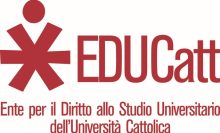
EDUCatt – Ente per il diritto allo studio universitario dell’Università Cattolica
It is the non-profit Foundation of the Cattolica University entrusted with the provision of Student Support Services. EDUCatt pays serious attention to the centrality of the person: the aim of the Foundation is not only to provide services to students, but also to guide them to their future in order to help them to create value with their work, competence and knowledge. The main goal is to provide services, ranging from accommodation to food service, from books and digital resources to scholarships and financial support, with the aim to match the real needs of the students and give them concrete solutions, keeping them up with technological development and innovation. In the last few years, EDUCatt has been at the forefront of the innovation on the students’ recognition and services provision at a European level, thanks to its participation in several partnerships related to this field.
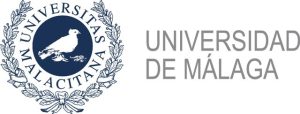
University of Malaga
The University of Malaga (UMA) is one of the main institutions of higher education in Spain: it is the first of the Spanish universities involved with the SDGs and number 40 in the world, according to the Impact ranking of Times Higher Education. Since its founding in 1972, UMA has expanded its prestige and international presence and it has more than 35,000 students, 58 Bachelor’s degrees, 53 Master’s degrees and 22 doctoral programs, as well as more than 200 own-diplomas. Its activity is carried out in 2 campuses of almost 2 million sq. m., in which more than 2500 teachers teach and research in 23 faculties and schools and in 278 research groups. As a result, more than 200 doctoral theses/year are made, there are 262 active patents (2019), 250 active research projects and more than 1,800 business contacts. The UMA is committed to research and educational innovation by boosting the quality of its teachers and research groups through its participation in international research projects with the support and sponsorship of local Technology Park (PTA) companies. The University has a professional guidance centre dedicated to promoting the employability of students and young researchers offering a wide portfolio of academic and professional advisory services, internships in companies, scholarships, etc. UMA is also part of the campus of excellence “Andalucía Tech”. UMA is strongly committed to promote student democratic participation and involve students in cultural, sporting, charitable and recreational programmes; to develop and promote student associations, to encourage and oversee the management of cooperation and volunteering, as well as educational opportunities at national and international levels.
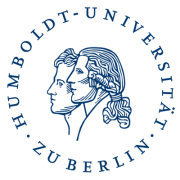
Humboldt-Universität zu Berlin
The Humboldt-Universität zu Berlin is the oldest University in Berlin. Founded in 1810, it has been one of the most notable universities in natural sciences in the 19th and 20th century and linked to several important achievements in physics and mathematics. Currently it has nine faculties and has also won the title of “University of Excellence”.

John Paul II Catholic University – Katolicki Uniwersytet Lubelski
The John Paul II Catholic University of Lublin (KUL) was the first university in Lublin and the oldest Catholic university in East-Central Europe. Nowadays, KUL is a well-known academic centre, which is highly valued in Europe and globally. It is a modern, innovative and dynamically developing university with traditions and great scientific achievements, highly rated by students and graduates. At KUL, Polish and foreign students can choose from a wide range of faculties and fields of study. It is an open university that welcomes people of all religions. A lot of our graduates hold prestigious positions in world-renowned institutions in Poland and abroad. KUL hires about 970 academic lecturers. Over 10,510 B.A., M.A., PhD students and nearly 900 foreign students from 51 countries study on 63 fields of study and in numerous courses. Within an organizational structure, there are seven faculties: Theology; Law, Canon Law and Administration; Philosophy; Humanities; Social Sciences; Science and Health; Off-Campus Faculty of Engineering and Technical Sciences in Stalowa Wola; other units: College of Interdisciplinary Individual Studies in Humanities and Social Sciences; Doctoral School (PhD programmes in: Philosophy, History, Linguistics, Literary Studies, Art Studies, Law, Theological Studies, Social Sciences, Pedagogy, Canon Law, and Psychology). KUL is a co-founder and member of many organizations and associations such as the International Federation of Catholic Universities. KUL was also an initiator of the Eastern-European University Network. It gathers universities from five countries: Ukraine, Belarus, Moldova, Georgia and Poland. The aims of Eastern-European University Network are cooperation in the field of research and academic education, support of national minorities, organization of joint cultural and sport events. At present, the University cooperates with over 200 foreign research institutions. KUL has participated in / coordinated a number of research projects co-financed from a wide range of sources. Currently, it runs over 90 projects funded from national and international institutions, programmes, e.g.,: Foundation for Polish Science, National Science Centre, National Centre for Research and Development, European Commission (Justice Programme), PL-BY-UA, Erasmus+. Projects financed from internal/external sources reflect a wide range of academic staff research interests.

European Campus Card Association
The European Campus Card Association (ECCA) was established as a not-for-profit association in 2002. Its policies and strategies are dedicated to the implementation of student eID credentials in Higher Educational Institutions (HEIs) that support student mobility and the provision of trusted identification and secure access to services across European countries. Its main strategy focuses on the provision of interoperability, connectivity and mobility between HEIs both within their home country and across Europe. ECCA’s key activities are mainly focused on a process of networking, knowledge sharing and collaboration with its membership of European HEIs and Services Providers. These activities include initiating research projects, workshops, surveys with its membership, policy makers and other relevant stakeholders throughout Europe and the United States. The strategy behind these initiatives is to gather and evaluate important information on the benefits, requirements and viability of a trusted Student eID credential, compliant to eIDAS regulations that supports HE Institutions and Service Providers on a cross-border basis throughout Europe.
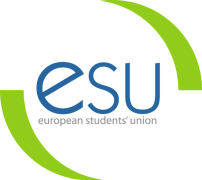
European Students’ Union
The European Students’ Union (ESU) is the umbrella organisation of 45 National Unions of Students (NUS) from 40 countries. The aim of ESU is to represent and promote the educational, social, economic, and cultural interests of students at European level towards all relevant bodies and in particular the European Union, Bologna Follow Up Group, Council of Europe and UNESCO. Through its members, ESU represents almost 20 million students in Europe.

